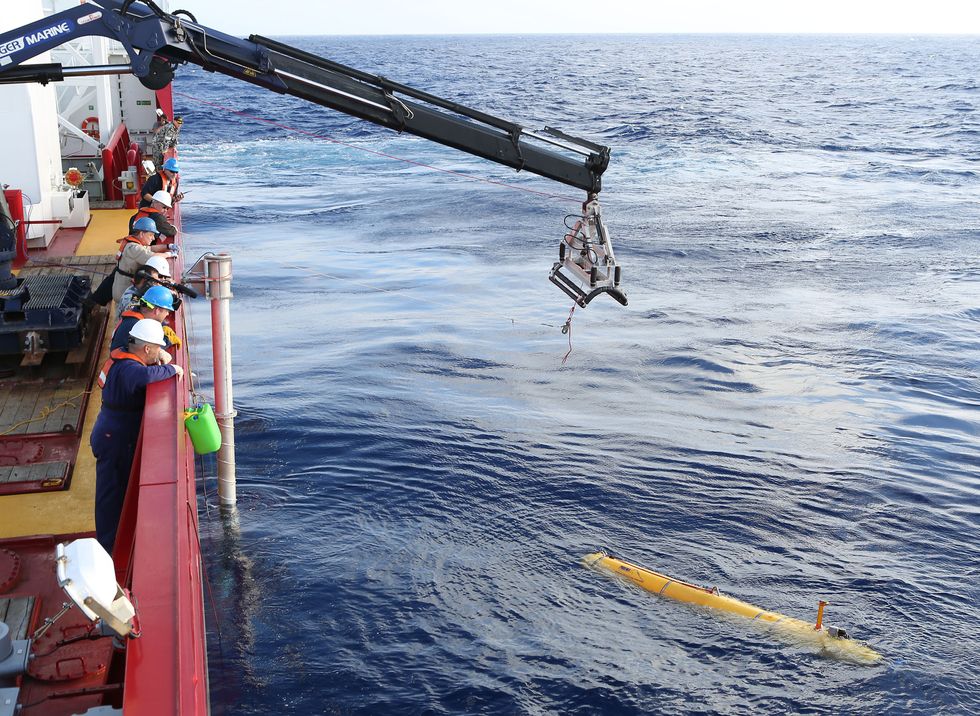The delay was "not unexpected" as deteriorating weather conditions were incoming
Don't Miss
Most Read
Trending on GB News
The hunt for missing Malaysia Airlines flight MH370 has been suspended after just days of searching in the Southern Indian Ocean.
The £56million mission led by UK-based marine robotics company Ocean Infinity has been halted due to deteriorating weather conditions. Operations will not resume until safer conditions return.
Peter Waring, a former deputy operations manager on the original search, confirmed the mission has been postponed until November when summer returns to the Southern hemisphere.
The delay was "not unexpected" according to Waring, who spoke to The Sun about the suspension.

Despite public frustration, Waring rejected conspiracy theories that officials or search companies are hiding information
GETTY
Waring explained that fierce Southern Ocean storms and treacherous sea conditions often force crews to abandon search efforts during the brutal southern winter.
"The weather tends to get really quite bad in the Southern Indian Ocean during the southern winter," he told The Sun, "It becomes a little bit difficult for the ships to remain down there, a little bit dangerous."
Waring described the search area as "just about the worst place you can be" in winter.
One vicious storm system after another rolls through, generating waves up to five metres high with relentless winds.
MORE LIKE THIS:
"You're extremely exposed, and it's about six days' sailing to the nearest port, which is Fremantle," he added.
Recovery operations using autonomous underwater vehicles (AUVs) become "almost impossible" when heavy seas make it too dangerous to winch equipment back on deck.
"Any kind of evolution, as we call it in the maritime world, of that kind is really, really dangerous," Waring said.
He warned that attempting retrieval in foul weather risks losing crucial data or equipment.
The seabed in the search zone presents additional challenges, being described as "incredibly complex".
The area is dynamic, mountainous and deep, requiring pinpoint precision and advanced robotics to scan properly.
Waring cautioned that if weather conditions suddenly deteriorate during a 3-day AUV mission, recovery could become impossible.
Despite public frustration, Waring rejected conspiracy theories that officials or search companies are hiding information.

Recovery operations using autonomous underwater vehicles (AUVs) become "almost impossible" when heavy seas make it too dangerous to winch equipment back on deck
GETTYHe called for greater transparency about the science behind the new search zone.
"I'd like to see the research and science behind this new search released," he said, "That would stop some of the confusion and show people that experts are making these decisions, not online conspiracy theorists."
Waring expressed confidence in Ocean Infinity as the best hope for solving the MH370 mystery.
"If any organisation on Earth is going to find MH370, it's almost certainly going to be Ocean Infinity," he said.
He remains hopeful the wreckage will eventually be found, especially if the search expands beyond its initial 15,000 square kilometre scope.








